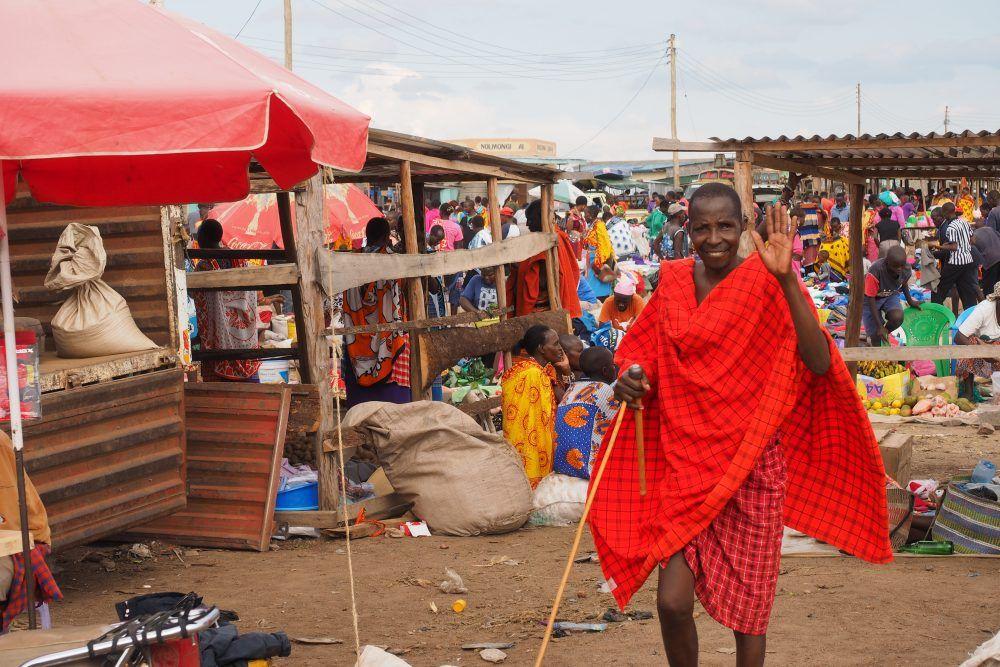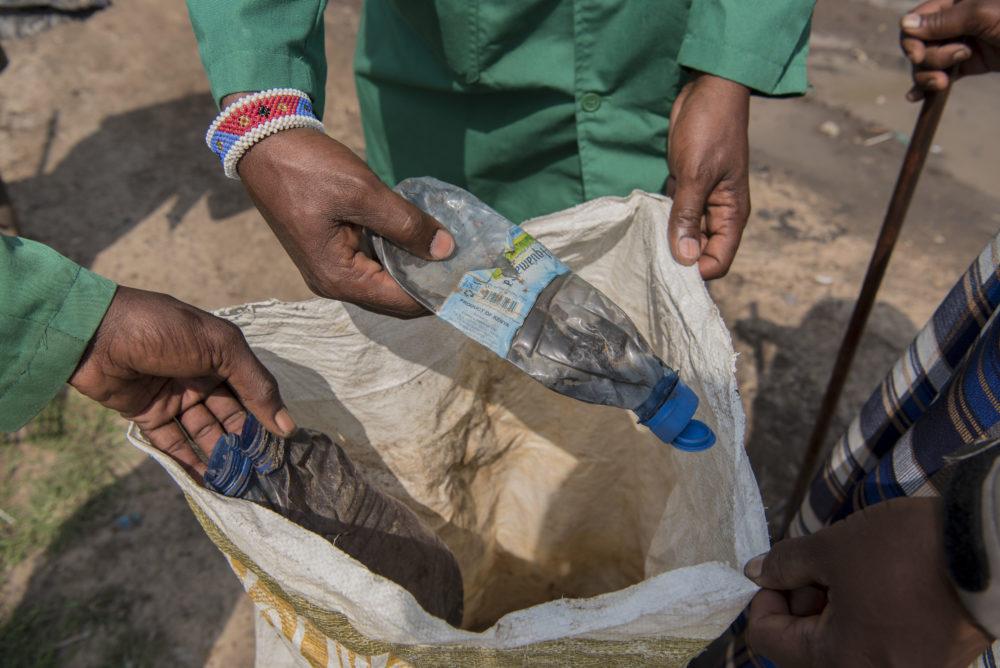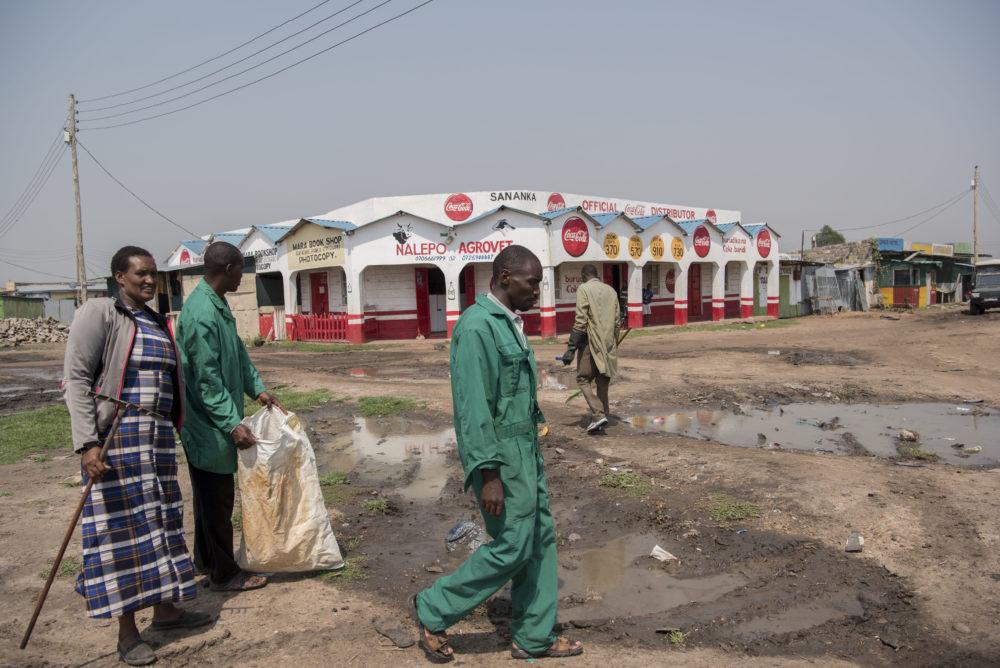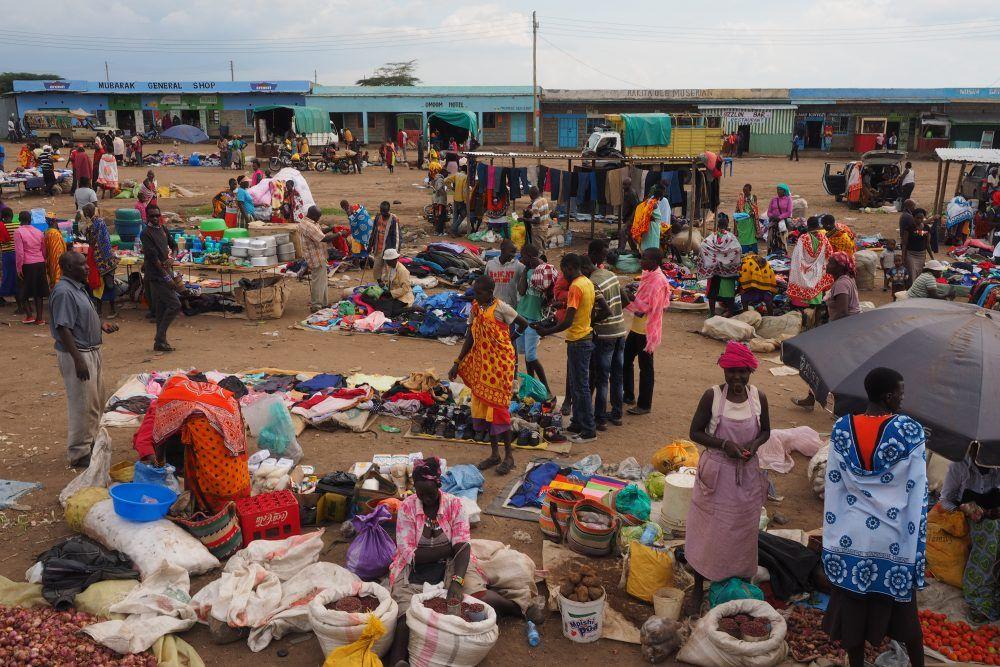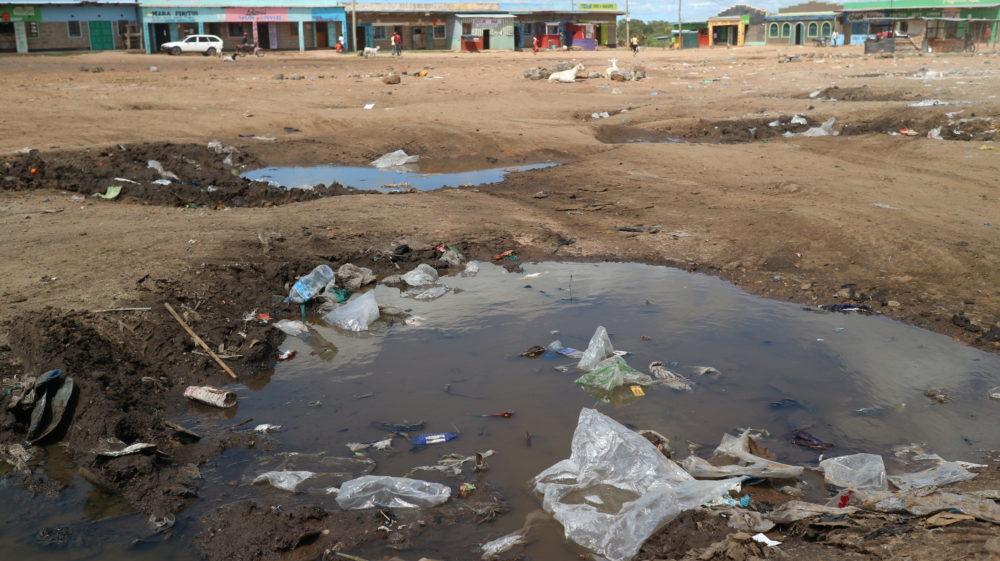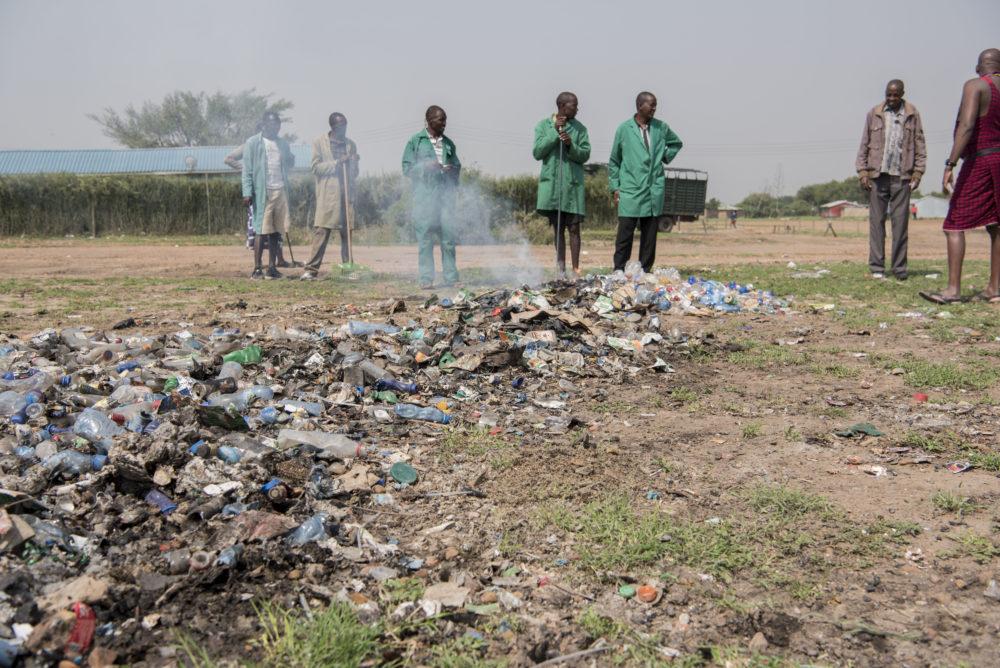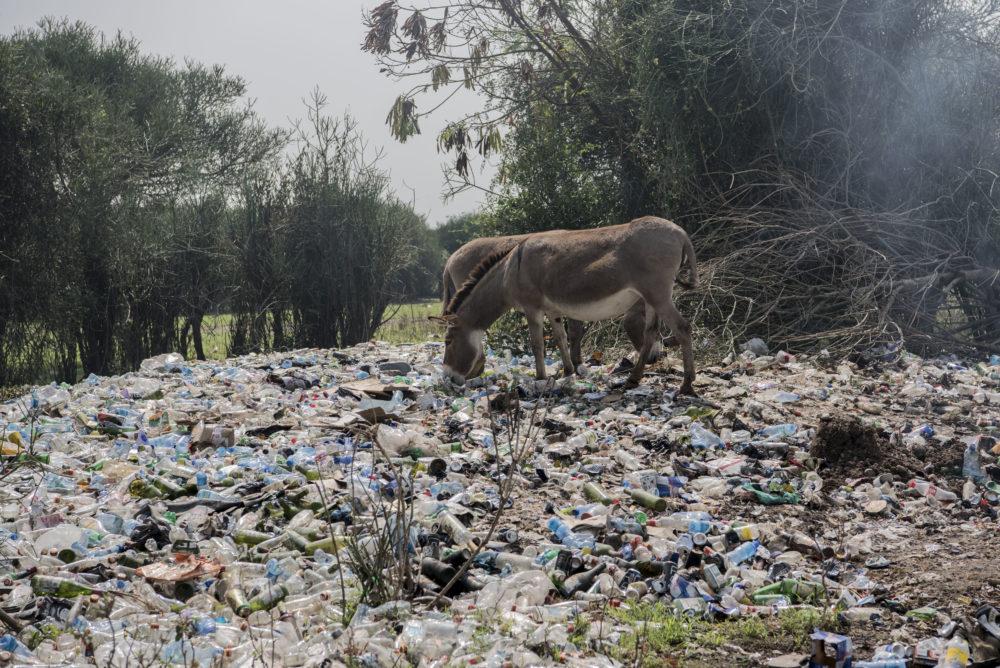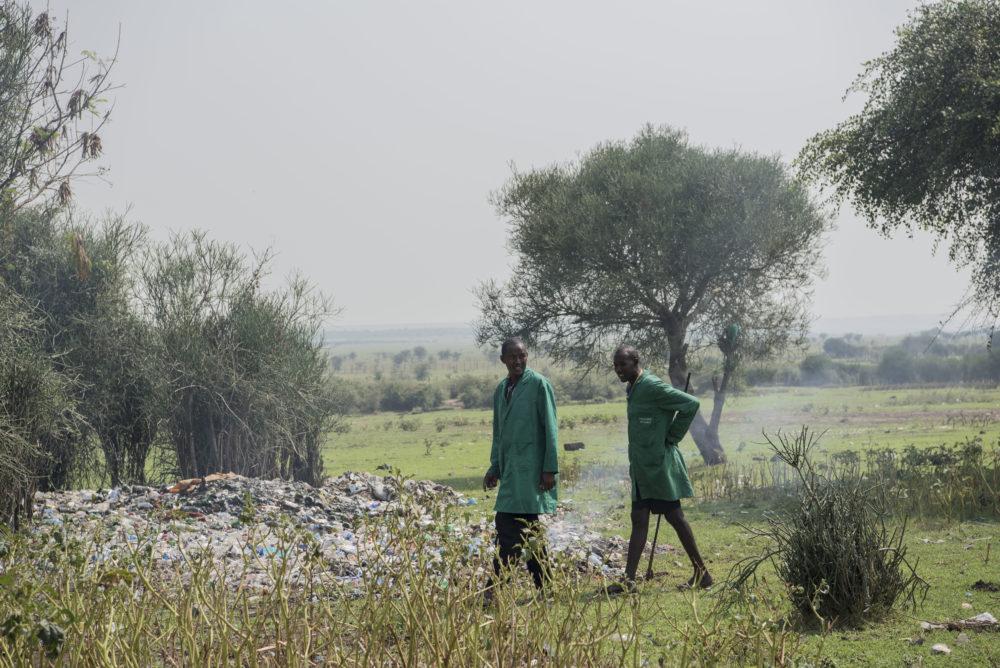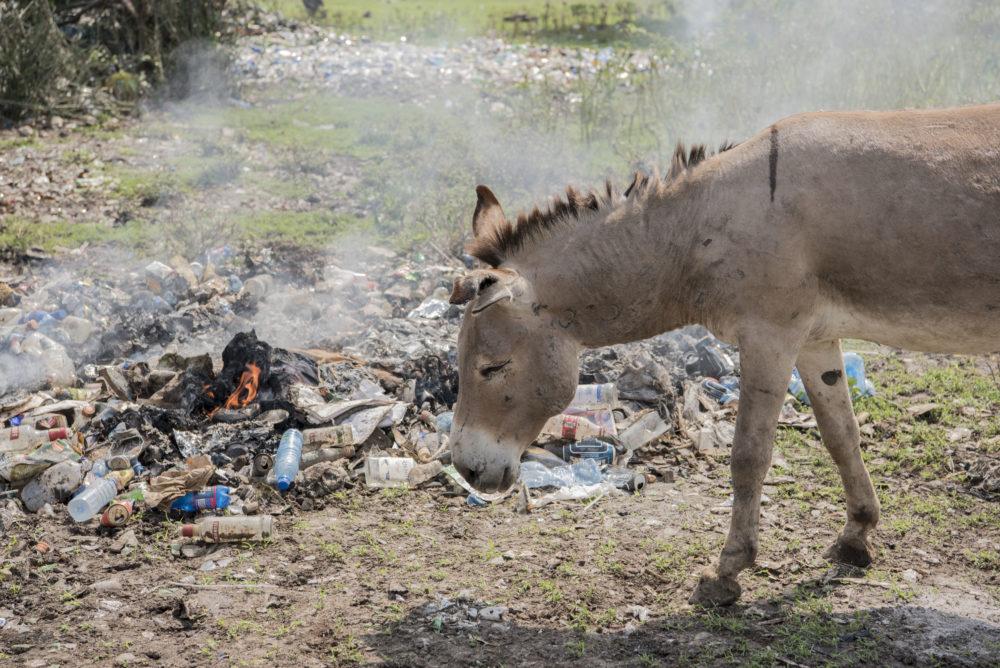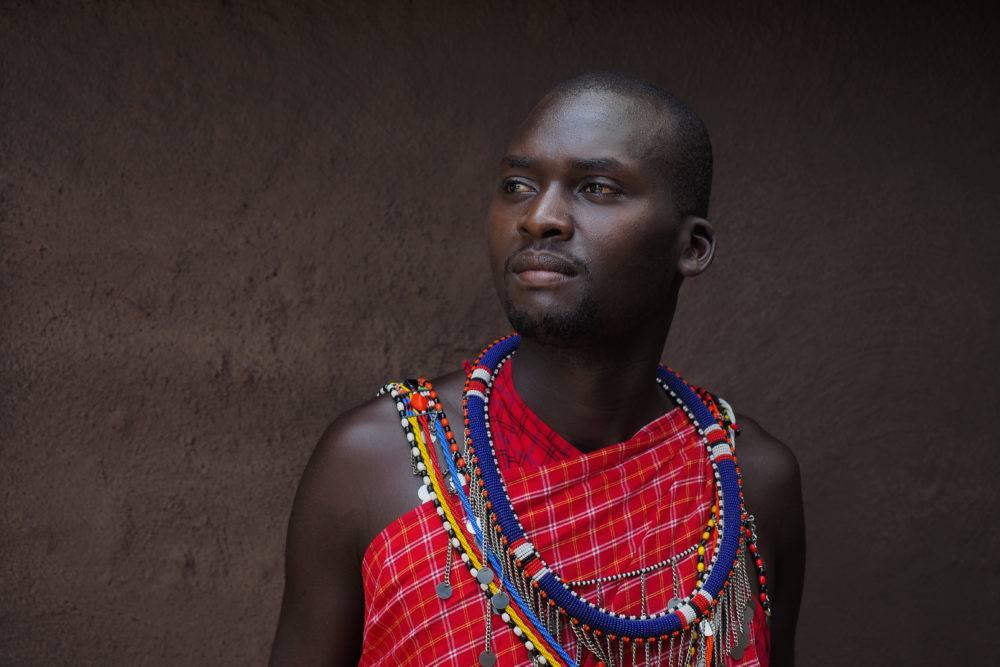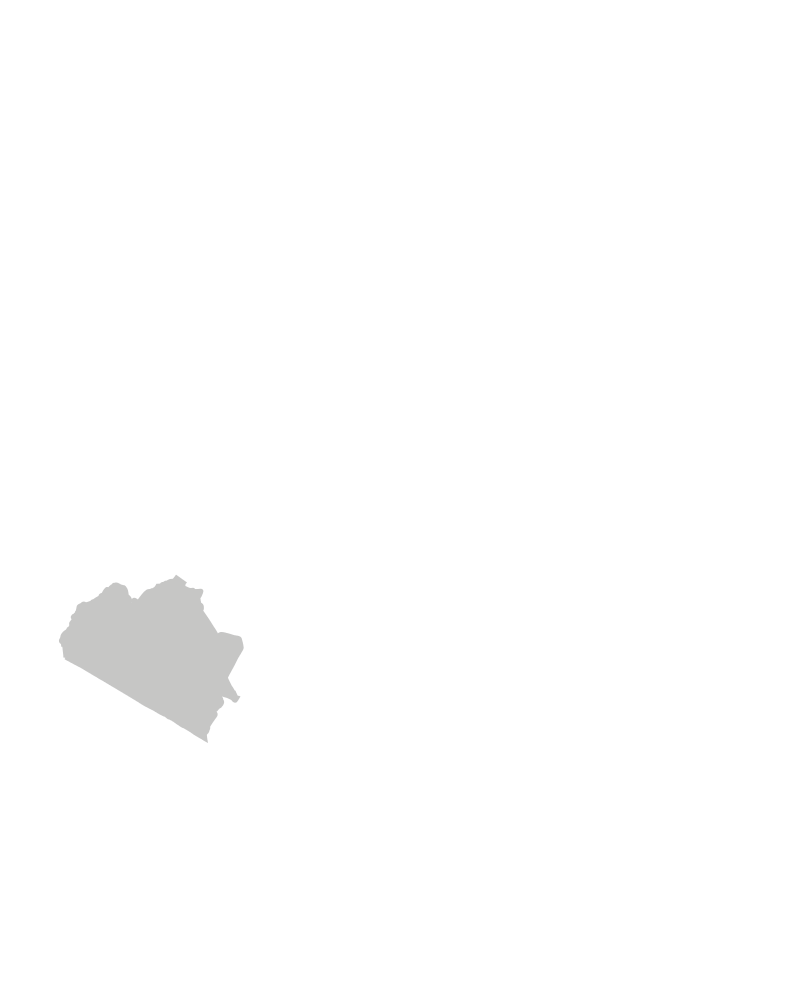
waste collection to benefit the local communities
As a responsible tourism operator, we at Basecamp Explorer recycle the solid waste produced by our business. More importantly, we extend our program of waste collection, management and recycling to benefit the local communities. We wish to empower the Maasai people by facilitating sustainable development on their land.
WASTE COLLECTION TO BENEFIT THE LOCAL COMMUNITIES
The Maasai, once a self-sustained tribe with enough land to graze their cattle, are increasingly losing their cattle to accidental feeding on plastic bags littering the pasture. Loss of livestock means loss of traditional source of food and income.
With the recent increase in population and the migration of people from other regions to the Maasai Mara area, there has been an unprecedented increase in domestic and industrial waste generation. Some waste products are non-biodegradable such as plastics, polythene bags, metals and glasses.
The Basecamp Masai Mara (BCMM) campsite borders the Masai Mara National Reserve and is situated along the Talek River. The nearby Talek town is characterized by high population growth and poor waste management. This is particularly challenging in the Talek area because Maasai communities have no experience in the handling of non-decomposing waste. This is now resulting in increased pollution and unsustainable community development.
All three Basecamp Explorer (BCE) campsites and Talek town together produce over 50 tons of waste a year. 30 percent of this comprises plastics and polythene waste. In 2016, Basecamp Explorer Kenya collected and recycled more than one ton of plastic in Talek.
As part of a large re-afforestation project aiming to revive Mara’s original biodiversity, Basecamp Explorer has partnered with Maasai landowners from Talek to implement proper waste management through waste collection and recycling.
Solid Waste
Solid waste is separated at the source in clearly labeled bins and sent to a waste collection centre for further sorting. The plastic materials are then shipped out to recycling plants via the Basecamp Explorer in Nairobi.
Organic Waste
Organic waste is composted in a four-chamber compost system. The end-product is later used for planting tree seedlings within the Basecamp Masai Mara camp.
Polythene
Polythene waste can be transformed into recyclable material
BCE’s waste management program not only has the potential to reverse the negative trend. It also:
- Ensures sustainable community development in the Talek area
- Protects wildlife and livestock from plastic waste
- Provides a starting point to scale recycling up to 15 additional nearby tourist camp sites and other Maasai communities
- Maintains the beauty of the Talek area for tourism, providing livelihood for the local Maasai population in the long term.
Status 2018
The Basecamp waste management project continues to help clean up and sanitize the Talek area collecting several hundred bags of papers, glass and plastic bottles, which are then separated at the collection point ready for recycling.
Despite daily collection of waste from the selected camps and the Talek Centre, the greatest challenge experienced in this project is the slow attitude change amongst the members of the community who do not dispose waste in the proper manner. Basecamp continues to create awareness amongst the community members on the need to collect, separate and properly dispose waste materials.
You can support the sustainable community development efforts of Basecamp Explorer by donating to the Waste Management Program.The immediate funding need amounts to USD 25’000 in order to purchase a vehicle to collect and transport the plastic and other solid waste. Basecamp Explorer Kenya will implement the program over the next 3 years.
